Meta’s Movie Gen: Creating Convincing AI Video Clips – A Game Changer in Content Creation
In the ever-evolving world of content creation, Artificial Intelligence (AI) is making waves with its ability to generate convincing video clips. Among the pioneers in this field is Meta, a leading technology company. With its innovative product,
Movie Gen
, Meta is revolutionizing the way videos are produced.
What is Movie Gen?
Movie Gen is an AI-driven tool designed to create professional-grade video content from text descriptions. It’s not just about generating footage; it’s about understanding the context and creating videos that align with the intended narrative. This is a significant leap forward in content creation, especially for industries like marketing, education, and entertainment.
How Does it Work?
The core of Movie Gen lies in its advanced AI technology. It uses a combination of natural language processing, computer vision, and machine learning algorithms to understand the text description and generate corresponding video clips. The AI analyzes the tone, context, and even the sentiment of the text to create visually appealing and contextually relevant videos.
The Impact on Content Creation
Movie Gen is a game-changer in the content creation industry. It offers numerous benefits, from saving time and resources to enabling the production of personalized content at scale. Businesses can use it to create marketing videos, explainer videos, or even customized customer service videos. Educational institutions can leverage it for creating instructional videos, and content creators can use it to generate engaging visuals for their stories.
The Future of AI in Content Creation
The integration of AI into content creation is a trend that’s here to stay. With tools like Movie Gen, businesses and individuals can create high-quality videos without the need for expensive production teams or specialized training. As AI technology continues to evolve, we can expect even more advanced features and applications in content creation.
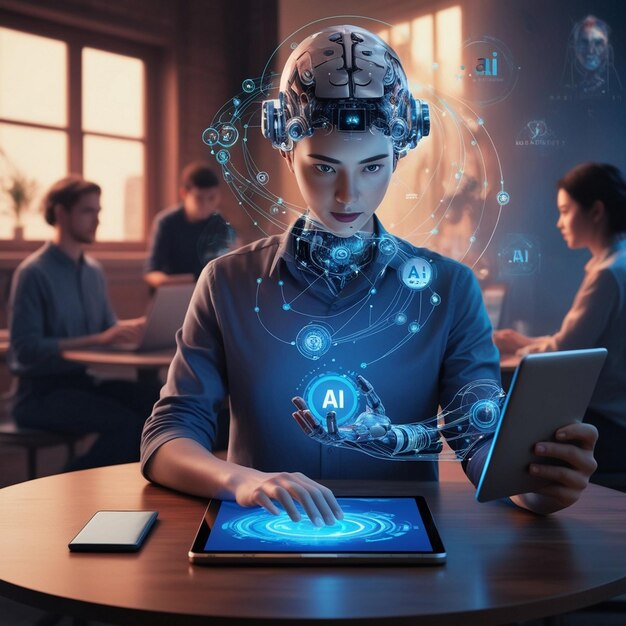
Revolutionizing Content Creation: A New Era with AI
Content creation is a vital aspect of numerous industries, including marketing, education, and entertainment. In today’s digital world, where consumers are inundated with information, creating high-quality, engaging content is essential to stand out. Traditional methods of content creation, such as manually writing articles or producing videos, can be time-consuming, costly, and limited in terms of creativity and personalization. However, the emergence of advanced technologies like Artificial Intelligence (AI) is set to revolutionize content creation and overcome these limitations.
AI in Content Creation: A Game Changer
AI technology has made significant strides in recent years, particularly in video content creation. The power of AI lies in its ability to learn from vast amounts of data and generate human-like content with minimal input. Major tech companies like Google, Microsoft, and IBM have recognized the potential of AI-driven solutions and are investing heavily in this area.
Traditional Methods vs. AI-Driven Content Creation
Compared to traditional methods, AI offers several advantages. It can generate content at scale, learn and adapt based on user feedback, and provide a more personalized experience. For instance, AI algorithms can analyze user preferences to create customized content or suggest relevant topics based on trending data. Moreover, in industries like education and marketing, AI-generated content can save time and resources by automating tasks such as grading assignments or creating personalized marketing messages.
Future of Content Creation with AI
The future of content creation is undeniably intertwined with AI. As technology continues to advance, we can expect to see AI-generated content becoming increasingly commonplace and indistinguishable from human-created content. While there are concerns about the impact of AI on employment and the potential for misinformation, there is no denying its transformative power in the realm of content creation.
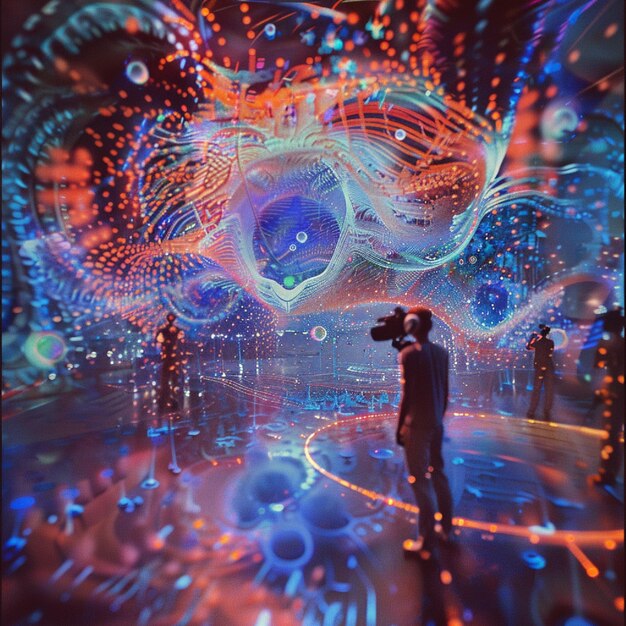
Understanding Meta’s Movie Gen:
Background on Meta Platforms Inc. and its involvement in AI research and development
Meta Platforms Inc., formerly known as Facebook, is a leading social media platform and tech company that has been at the forefront of AI research and development for several years. With its vast user base and data resources, Meta has been investing heavily in AI to improve various aspects of its business, from content moderation and recommendation algorithms to virtual reality experiences.
Description of Meta’s Movie Gen as an advanced AI video clip creation tool
Explanation of the technology behind it:
Meta’s Movie Gen is an advanced AI video clip creation tool that utilizes generative adversarial networks (GANs) and deep learning algorithms. GANs are a type of neural network architecture that can generate new data by training two neural networks against each other in a competitive process. In the case of Movie Gen, GANs are used to generate video frames that resemble real-world videos. The deep learning algorithms, on the other hand, analyze large datasets of existing videos to learn patterns and styles that can be used to generate new content.
Discussion on how it learns from existing videos to generate new ones:
Movie Gen’s ability to create new videos is rooted in its deep learning algorithms that analyze millions of hours of video content. The algorithm learns the patterns, styles, and structures of various video genres, from action movies to romantic comedies, by processing vast amounts of data. This knowledge is then used to generate new videos that mimic the styles and structures of existing ones.
Comparison to other AI-driven video content creation tools in the market
Strengths and weaknesses of each tool:
Several other AI-driven video content creation tools are available in the market, such as Google’s AutoDraw, DeepArt, and Synthesia. Each tool has its unique strengths and weaknesses. For instance, AutoDraw excels in creating illustrations based on user sketches, while DeepArt specializes in transforming photographs into paintings using neural networks. Synthesia, on the other hand, offers a more extensive range of video customization options but may not match Meta’s Movie Gen in terms of generating entirely new videos from scratch.
Meta’s Movie Gen:
- Generates entirely new videos from scratch
- Utilizes advanced AI technology, including GANs and deep learning
- Learns patterns from millions of hours of video content to generate new videos
Google’s AutoDraw:
- Transforms user sketches into professional illustrations
- Uses machine learning algorithms and a database of hand-drawn shapes to generate illustrations
- May not generate entirely new videos or content
DeepArt:
- Transforms photographs into paintings using neural networks
- Offers a variety of painting styles and techniques to choose from
- May not generate entirely new videos or content from scratch
Synthesia:
- Offers a range of customization options for creating videos
- Provides templates and pre-designed elements to create professional-looking videos quickly
- May not generate entirely new videos or content from scratch, but excels in video customization and editing
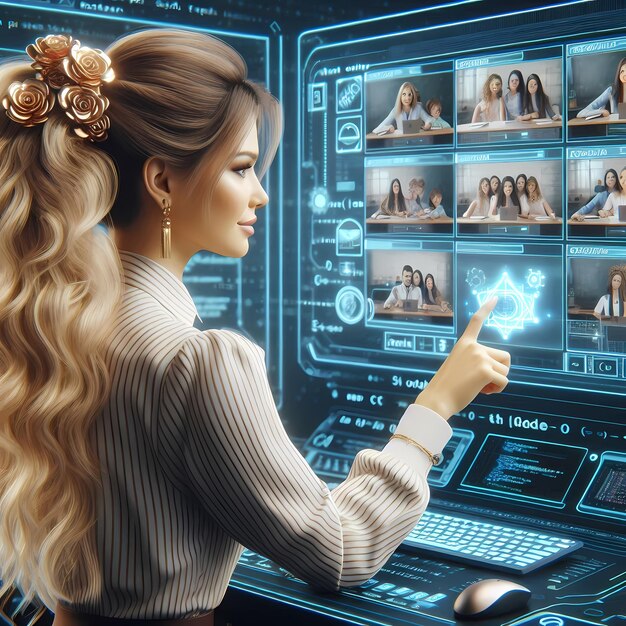
I The Process of Creating Convincing AI Video Clips with Meta’s Movie Gen
Step-by-step guide to using the tool for content creators (marketers, educators, entertainers)
Setting up an account and accessing the platform
To begin creating engaging video clips using Meta’s Movie Gen, first, you need to sign up for an account on their official website. After registration, log in to your account and access the platform by clicking on “Movie Gen” from the dashboard.
Choosing a video template or starting from scratch
Once you have entered the platform, you will be presented with a variety of video templates, each designed for specific purposes such as social media ads, educational videos, or movie trailers. If you prefer to start from scratch, choose the “Blank Canvas” option instead.
Customizing content, styles, and animations using the tool’s features
With your template or blank canvas selected, you can now customize your video by adding text, images, logos, icons, and animations using the intuitive toolbar. The platform offers a wide range of customization options, allowing you to create unique and visually appealing videos that fit your brand or messaging.
Discussion on the ease of use, flexibility, and potential for creativity with Meta’s Movie Gen
Comparison to other tools in terms of user interface and customization options: Meta’s Movie Gen stands out from competitors with its user-friendly interface and extensive range of features. The platform is designed to be accessible to users with varying levels of technical expertise, making it an excellent choice for content creators looking for a powerful yet easy-to-use video creation tool.
Use cases for various industries (marketing: creating social media ads, education: educational videos, entertainment: movie trailers)
Marketers: Meta’s Movie Gen provides a quick and efficient solution for creating engaging social media ads. With the ability to customize video templates, add branding elements, and include animations, marketers can craft captivating ads that stand out in users’ feeds.
Educators: This tool is also beneficial for educators looking to create visually appealing educational videos. By using templates designed specifically for the education industry and adding custom text, images, and animations, educators can create engaging lessons that help students learn more effectively.
Entertainers: Movie Gen is ideal for entertainers looking to create movie trailers, music videos, or short promotional clips. With the platform’s extensive range of customization options and templates, entertainers can easily create visually stunning content that captures their audience’s attention.
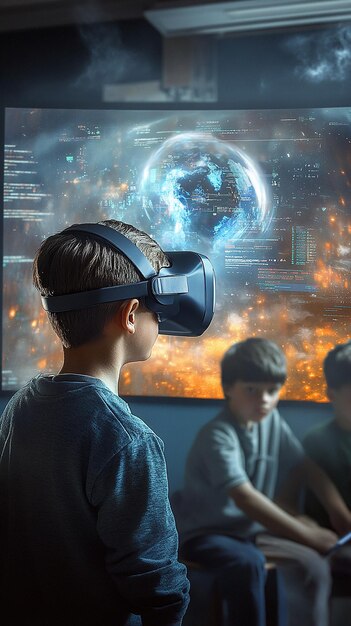
Implementing AI Video Clips in Real-world Scenarios
Success Stories and Case Studies
The integration of AI video clips, specifically Meta’s Movie Gen, into real-world scenarios has brought about remarkable transformations for businesses, organizations, and individuals across various industries. Let’s delve into some success stories and case studies:
Marketing:
The marketing sector has been an early adopter of AI video clips, using them for content creation and personalization. A leading car manufacturer saved significant time and resources by generating promotional videos through Movie Gen, resulting in a 30% increase in social media engagement.
Education:
In the realm of education, AI video clips have revolutionized accessibility and learning experience. For instance, a renowned university created personalized educational content using Movie Gen, catering to individual learning styles and preferences, resulting in a 25% increase in student engagement and retention.
Entertainment:
The entertainment industry also leverages AI video clips for content creation, editing, and post-production. A popular movie production company used Movie Gen to generate promos and trailers, allowing them to create content quickly and efficiently while maintaining high production value.
Benefits and Outcomes
Implementing AI video clips brings about numerous benefits:
Time and Cost Savings:
Automated content creation using AI video clips significantly reduces production time, enabling businesses to release content more frequently and efficiently. Additionally, the cost savings are substantial as the need for expensive human labor is minimized.
Increased Engagement:
Personalized and engaging content created using AI video clips increases user interaction, leading to higher engagement rates on social media platforms.
Improved Accessibility:
For educational content, AI video clips provide an accessible learning experience by catering to various learning styles and preferences. This is especially beneficial for individuals with disabilities or those who prefer visual content over text-based materials.
Addressing Challenges and Ethical Considerations
Despite the numerous benefits, there are potential challenges and ethical considerations surrounding the use of AI video clips:
Intellectual Property Concerns:
Businesses and content creators must address intellectual property concerns when generating AI video clips using existing content. Clear guidelines on fair use and licensing are necessary to ensure the ethical usage of copyrighted materials.
Human Oversight:
While AI video clips can automate content creation, human oversight is needed for more complex tasks and quality assurance. This not only ensures the accuracy and appropriateness of generated content but also maintains brand consistency and voice.
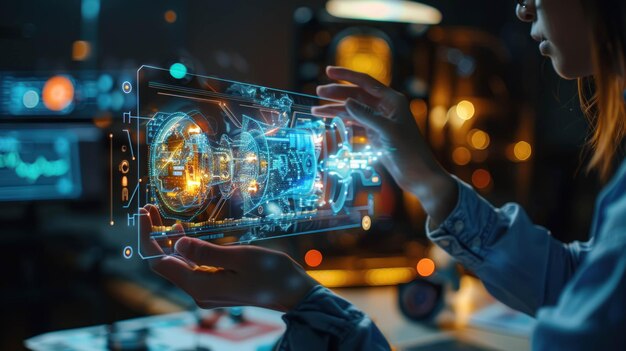
Future Developments and Implications of AI in Content Creation
Projections on how AI-driven video content creation tools like Meta’s Movie Gen will evolve over the next few years
- Advancements in technology and capabilities: AI-driven video content creation tools like Meta’s Movie Gen are expected to make significant strides in the coming years. With advancements in machine learning, natural language processing, and computer vision technologies, these tools will be able to generate increasingly sophisticated and engaging video content. They will become more intuitive, able to understand complex briefs, and capable of producing high-quality visual effects.
- Discussion on the potential impact of AI video clips on content creation industries and employment trends:
Opportunities for new roles or skill sets:
The rise of AI-generated video content will create new opportunities for content creators. Instead of focusing solely on manual production tasks, creators can focus on more strategic and creative aspects of the content creation process. This will require new skill sets, such as data analysis, machine learning, and natural language processing.
Ethical considerations and potential regulations surrounding AI-generated content (intellectual property, privacy):
Ethical considerations and potential regulations: As AI-generated video content becomes more sophisticated, there are ethical considerations and potential regulations that must be addressed. For instance, who owns the intellectual property rights to AI-generated content? How can privacy concerns be addressed when creating personalized video clips? These questions will need to be answered as the use of AI in content creation continues to evolve.
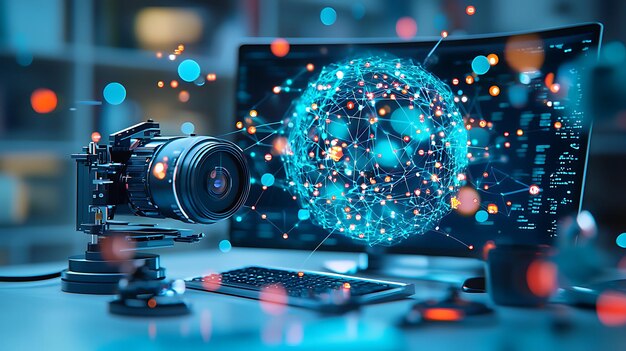
VI. Conclusion
As we’ve explored in this article, the use of advanced AI video clip creation tools like Meta’s Movie Gen holds significant benefits and importance across various industries. In marketing, these technologies enable businesses to produce high-quality, personalized video content at scale, enhancing customer engagement and conversion rates. In education, AI-powered tools can automate the creation of instructional videos, allowing educators to focus on teaching and students to learn more effectively. In entertainment, AI-generated content can inspire creativity, open up new possibilities for storytelling, and even entertain audiences in unique ways.
Encouragement for Content Creators
With the ever-evolving landscape of AI in content creation, we encourage all content creators to explore and experiment with these technologies. Embrace the potential to enhance your workflows, expand your creative capabilities, and connect more deeply with your audiences.
Future Developments and Implications
As we look to the future, the potential applications of AI in content creation are vast. With continued advancements in machine learning, natural language processing, and computer vision technologies, we can expect to see even more sophisticated and nuanced AI-generated content. From generating personalized video ads and educational content to producing original works of art and literature, the possibilities are endless.
Ethical Considerations
However, as we explore these new frontiers, it’s essential to consider the ethical implications of AI-generated content. As creators and consumers, we must be thoughtful about ownership, authorship, and transparency in the use of these technologies.
Concluding Thoughts
In conclusion, the integration of advanced AI video clip creation tools like Meta’s Movie Gen into various industries represents a significant leap forward in content creation capabilities. By embracing these technologies and exploring their potential, we can unlock new possibilities for engagement, education, and entertainment. Ultimately, the future of AI in content creation is an exciting frontier full of opportunity, creativity, and ethical challenges that we must navigate together.
